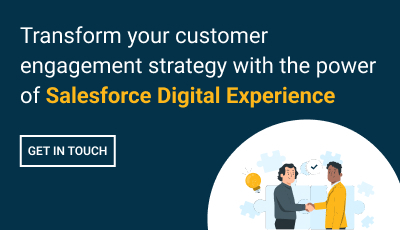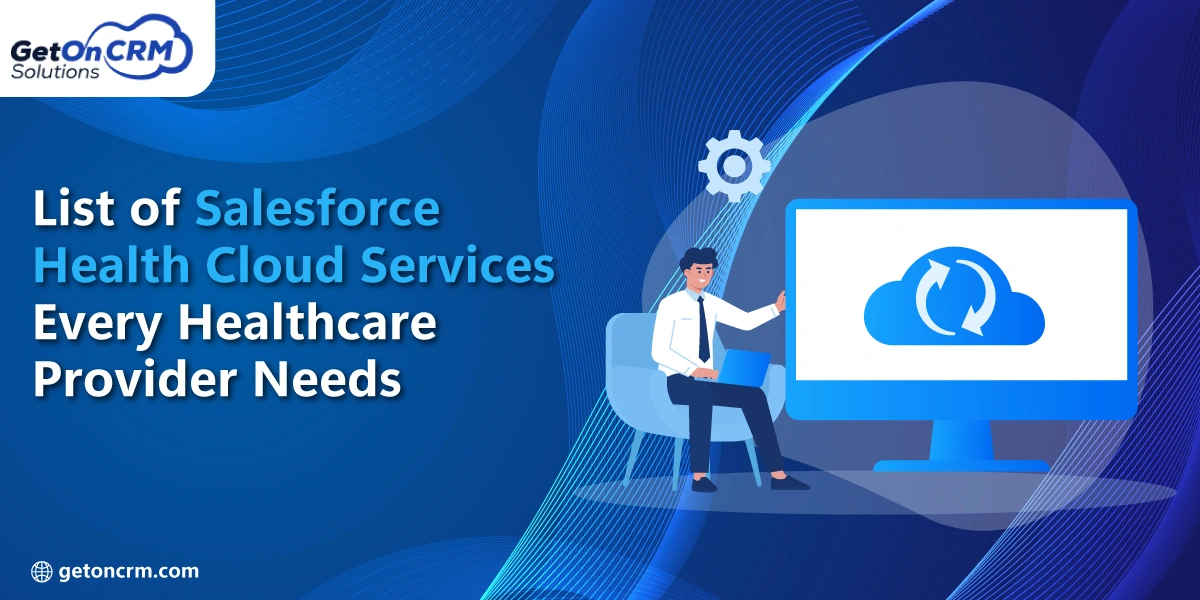Salesforce Experience Cloud, formerly known as Community Cloud, is a robust platform designed to create rich, personalized digital experiences. Whether you’re catering to customers, employees, or partners, this cloud-based solution allows businesses to create customized online communities, portals, and mobile apps that are fully integrated with Salesforce CRM. As the digital landscape evolves, businesses need platforms that enable them to engage with their audience in meaningful ways, enhancing relationships while driving growth.
With Experience Cloud, businesses can foster collaboration, improve customer satisfaction, and streamline operations by integrating various processes within a single, customizable platform. In today’s competitive business environment, offering personalized experiences is no longer a luxury—it’s a necessity. Salesforce Experience Cloud enables businesses to meet this demand by tailoring every interaction to individual preferences, needs, and behaviours, helping organizations deepen relationships with their stakeholders.
In this blog, we’ll explore Salesforce Experience Cloud’s features, benefits, and business impact, showing how it can be a game-changer for organizations aiming to elevate their digital engagement strategies.
What is Salesforce Experience Cloud?
Salesforce Experience Cloud is a powerful digital platform that enables businesses to build highly personalized online experiences for customers, partners, and employees. Previously known as Community Cloud, this solution integrates seamlessly with Salesforce CRM, making it easy for businesses to leverage their existing data and tools while enhancing their engagement strategies.
Unlike traditional portals, Experience Cloud allows organizations to create dynamic digital communities that go beyond just customer support or partner engagement. It opens up a full-fledged ecosystem where users can collaborate, share knowledge, manage workflows, and interact with the brand in meaningful ways.
Experience Cloud offers flexibility and customization, making it suitable for diverse industries, from retail and finance to healthcare and education. The platform allows businesses to create branded, responsive web portals and mobile applications, ensuring that users can access the community anytime, anywhere, and on any device. That is particularly crucial in today’s mobile-first world, where accessibility and real-time engagement are vital to improving user satisfaction and loyalty.
Whether businesses aim to enhance customer service, build stronger partnerships, or improve employee productivity, Salesforce Experience Cloud offers a solution that connects all stakeholders in a cohesive, integrated manner. By utilizing Salesforce’s robust CRM capabilities, businesses can streamline interactions, deliver personalized experiences, and manage relationships more effectively, ultimately driving growth and success.
Key Features of Salesforce Experience Cloud
Salesforce Experience Cloud is packed with features that enable businesses to deliver seamless, tailored digital experiences for various stakeholders. Here are some of the most impactful features that set Experience Cloud apart:
Business Integration
One of Experience Cloud’s standout features is its ability to integrate with existing business operations and data systems. It bridges the gap between different business processes by connecting CRM data directly with digital experiences.
That means customers can create and escalate cases, partners can update leads and opportunities, and employees can access critical documents in real-time, all within a unified platform. This deep integration enhances productivity and allows businesses to automate workflows and streamline communication.
A customer-facing portal could allow users to log service requests while integrating directly with the internal support system to streamline resolution times. Similarly, partners can collaborate more effectively by sharing leads and accessing necessary product information directly through the platform.
Personalization
Personalization is at the heart of Experience Cloud. The platform leverages user data to deliver highly customized experiences based on individual preferences, behaviours, and needs.
Whether it’s recommending relevant content, connecting users to appropriate experts, or showcasing targeted products, personalization ensures that each interaction is meaningful and tailored to the user.
This feature significantly boosts engagement, as users feel more connected to the brand when their experience is personalized. Businesses can create personalized homepages, discussion groups, and even content feeds for different users, which not only enhances user satisfaction but also fosters loyalty.
Customization and Branding
Every business is unique, and Experience Cloud provides extensive customization options to reflect that. With Salesforce Experience Builder, companies can design and customize their portals or communities to align with their brand identity.
That includes everything from custom layouts and themes to tailored navigation menus and components.
The platform also allows businesses to maintain consistent branding across all user touchpoints, enhancing brand recognition and trust. Whether it’s a customer community, a partner portal, or an internal employee collaboration platform, companies can create a digital experience that feels uniquely their own.
Mobile Accessibility
In today’s mobile-centric world, providing a consistent experience across devices is crucial. Salesforce Experience Cloud ensures that users can access portals and communities from any device, whether through the Salesforce mobile app or a mobile browser.
The platform is fully responsive, meaning that no matter the screen size, users enjoy the same seamless experience.
This mobile accessibility feature not only boosts user engagement but also ensures that employees and partners remain connected and productive while on the go. Whether accessing a knowledge base, contributing to a discussion, or managing tasks, mobile access makes it easier for users to interact with the platform anytime, anywhere.
Lightning Bolt
Experience Cloud’s Lightning Bolt solution allows businesses to quickly deploy pre-built templates and components to create digital experiences with speed and efficiency.
With Lightning Bolt, companies can develop and launch next-generation portals and apps in a fraction of the time it would traditionally take.
These customizable templates are especially useful for businesses that need to get a community or portal up and running quickly while still maintaining flexibility to adapt the experience to specific user needs. By accelerating deployment times, Lightning Bolt empowers businesses to stay agile and responsive to market demands.
Collaboration Tools (Chatter and Groups)
Collaboration is one of Experience Cloud’s key strengths, particularly through its integration with Chatter and Groups.
Chatter enables users to collaborate in real-time by sharing updates, files, and feedback. Employees can work together on projects, exchange ideas, and find subject-matter experts, regardless of location.
The Groups feature allows users to organize discussions and activities by creating specific spaces for teams, events, or campaigns. This structure fosters more efficient collaboration by enabling users to share files, discuss key issues, and work toward shared goals in an organized way.
Whether for internal collaboration or partner engagement, these tools help break down silos and improve communication.
Advanced Integrations and Third-Party Applications
Salesforce Experience Cloud excels in its ability to integrate seamlessly with a wide range of third-party applications and external systems. This capability allows businesses to extend the functionality of their Experience Cloud portals, creating a more comprehensive and powerful digital experience.
AppExchange Integrations
Salesforce Experience Cloud can easily integrate with third-party apps available on Salesforce’s AppExchange, the leading enterprise cloud marketplace. These integrations allow businesses to add additional functionality to their portals and communities without the need for custom development.
Whether it’s integrating advanced reporting tools, AI-driven chatbots, or event management systems, AppExchange offers countless options to enhance the digital experience.
Businesses can integrate customer service apps that allow users to access knowledge bases or submit support tickets directly from the community portal. Additionally, marketing teams can utilize integration with marketing automation tools to create targeted campaigns based on user behaviour and engagement metrics.
Cross-System Integration
One of the key strengths of Salesforce Experience Cloud is its ability to pull in data from external systems, offering a unified experience across different platforms.
This cross-system integration allows businesses to sync data from various sources, such as ERP systems, e-commerce platforms, or HR software, into their Experience Cloud community.
A retail company can integrate its e-commerce platform with Experience Cloud to allow customers to track orders, access personalized product recommendations, and engage with customer service—all within the same portal.
Similarly, businesses in the finance sector can integrate banking or investment platforms, providing a seamless customer experience where users can view and manage accounts directly within the community.
Flexible API Support
Salesforce Experience Cloud supports the use of APIs, which further enhances the platform’s flexibility and extensibility. By leveraging APIs, businesses can connect virtually any external system to their Experience Cloud community, allowing for real-time data flow and interactions.
This level of integration means that companies aren’t limited by the tools they use—if an app or system has an API, it can be connected to Experience Cloud.
A healthcare provider could integrate patient management systems through APIs, enabling patients to book appointments, access their medical records, or even consult with healthcare professionals directly through the community portal.
One of the most compelling reasons businesses choose Salesforce Experience Cloud is the ability to integrate various third-party applications and external systems seamlessly.
This level of flexibility ensures that organizations can build truly comprehensive digital experiences that meet their users’ specific needs while leveraging their existing technology stack.
Benefits of Salesforce Experience Cloud
Salesforce Experience Cloud offers numerous benefits that go beyond creating digital communities. It provides a comprehensive platform that enhances engagement, streamlines processes, and supports business growth. Here are some of the key benefits:
Enhanced Customer Engagement
One of Salesforce Experience Cloud’s primary advantages is its ability to create highly personalized experiences, which leads to greater customer engagement—by utilizing customer data from Salesforce CRM, Experience Cloud tailors interactions based on individual preferences and behaviours, allowing businesses to engage with customers in a way that feels personal and meaningful.
A customer support community can use personalization to provide users with relevant knowledge articles or suggest products based on their purchase history. This targeted approach makes interactions more relevant, increasing customer satisfaction and retention rates.
Streamlined Collaboration Across Stakeholders
Experience Cloud bridges communication gaps by bringing together customers, employees, and partners into one cohesive platform. Whether through customer portals, partner communities, or internal employee collaboration spaces, Experience Cloud promotes seamless interaction across different groups.
For businesses that rely on partner relationships, such as distribution channels or resellers, Experience Cloud enables partners to manage leads, access product information, and collaborate with internal sales teams in real time.
This level of transparency and accessibility boosts productivity and strengthens relationships across the business ecosystem.
Cost Optimization and Efficiency
By enabling self-service options and automating processes, Salesforce Experience Cloud reduces operational costs for businesses. Customers can resolve their issues through self-help knowledge bases, decreasing the need for support agents and lowering case volumes. This self-service model not only improves customer satisfaction but also leads to higher first-contact resolution rates.
In addition, the platform’s pre-built templates and components, such as Lightning Bolt, enable businesses to develop communities and portals quickly without the need for extensive custom development. This efficiency in portal development translates to cost savings and faster time-to-market.
Scalability and Flexibility
Salesforce Experience Cloud is designed to grow with your business. Whether you are a small business just starting or a large enterprise expanding globally, the platform is scalable to accommodate new users, features, and integrations. Businesses can easily adapt their communities as their needs evolve, adding new functionalities or expanding their user base without major disruptions.
This flexibility ensures that as your business grows, your digital experiences grow with it, making Salesforce Experience Cloud a future-proof solution for companies looking to expand their digital footprint.
Improved Partner Management
Experience Cloud offers powerful tools for managing partner relationships, making it easier to onboard, train, and collaborate with partners. Through partner communities, businesses can provide partners with the resources they need to succeed—whether it’s lead management, sales materials, or training programs.
Partners can track opportunities, access critical sales information, and even collaborate with internal sales teams directly through the platform. This improved communication and resource-sharing ensure that partners are empowered to work more efficiently, leading to stronger sales performance and reduced channel conflict.
Security and Compliance
In today’s digital landscape, security and compliance are paramount, especially when managing sensitive customer, employee, or partner data. Salesforce Experience Cloud is built on the Salesforce platform, which ensures top-tier security measures and compliance capabilities to protect data and ensure regulatory adherence.
Robust Security Features
Salesforce Experience Cloud benefits from Salesforce’s enterprise-grade security infrastructure, which includes features like data encryption, multi-factor authentication (MFA), and role-based access controls. These features ensure that only authorized users have access to specific data or functions within the community.
Businesses can customize permissions based on user roles—whether they’re customers, partners, or employees—ensuring that sensitive information is only visible to those who need it.
Experience Cloud also provides robust audit trails and monitoring tools that track user activity and changes within the platform. That enhances security and makes it easier to spot and address potential vulnerabilities in real time.
With features like Salesforce Shield, businesses can extend security through event monitoring and platform encryption, adding a layer of protection.
Compliance and Data Governance
Experience Cloud also supports compliance with industry-specific regulations such as GDPR (General Data Protection Regulation), HIPAA (Health Insurance Portability and Accountability Act), and others, depending on the region and industry.
Salesforce provides tools to help businesses comply with these regulations by offering data privacy settings, audit logs, and data retention policies that can be customized to meet specific compliance requirements.
For businesses in highly regulated industries such as healthcare, finance, or government, this level of control and compliance assurance is critical. For example, healthcare companies can leverage Experience Cloud to manage patient data securely, ensuring that personal health information (PHI) is stored and accessed in compliance with HIPAA regulations.
With its built-in security and compliance features, Salesforce Experience Cloud protects business and user data and helps organizations comply with international laws and regulations, reducing the risk of costly penalties or breaches.
Business Impact of Salesforce Experience Cloud
Salesforce Experience Cloud not only provides the tools for creating dynamic, personalized communities but also significantly impacts overall business performance. Its ability to integrate, automate, and personalize interactions with customers, employees, and partners can transform business outcomes in several key ways:
Improving Customer Satisfaction and Retention
One of the most notable impacts of Salesforce Experience Cloud is its ability to improve customer satisfaction. By providing customers with personalized experiences, self-service options, and real-time access to relevant information, businesses can resolve issues faster and enhance customer interactions.
Personalized experiences, such as tailored knowledge base recommendations and automated service portals, make it easier for customers to find solutions without needing direct support, reducing friction and boosting satisfaction.
Satisfied customers are more likely to stay loyal to the brand. By fostering deeper connections and offering ongoing support through customer communities, Experience Cloud helps reduce customer churn rates. It translates into long-term customer retention and a more loyal customer base.
Increased Productivity
For employees and partners, Experience Cloud significantly enhances productivity by simplifying access to information and collaboration tools. Employees can collaborate across departments, locations, and time zones using tools like Chatter and Groups. With real-time access to data and project updates, employees can make faster decisions and contribute more efficiently to the business’s goals.
For partners, the ability to access product information, share leads, and collaborate with internal teams through a dedicated partner portal ensures that sales processes run smoothly and effectively. This streamlined communication and data sharing reduces the time spent on administrative tasks and increases the time available for value-added activities like closing deals.
Revenue Growth
Salesforce Experience Cloud can drive business revenue growth by improving the efficiency of sales processes, enhancing customer engagement, and strengthening partnerships. By integrating the platform with Salesforce CRM, businesses can track leads, manage opportunities, and streamline sales workflows. This unified approach to managing customer and partner relationships can result in faster sales cycles and more closed deals.
Experience Cloud’s self-service portals enable businesses to reduce operational costs, freeing up resources that can be reinvested into growth strategies. As companies scale, the platform’s flexibility allows them to onboard more users and add functionalities, ensuring continued growth without significant overhead.
Improved Collaboration and Partner Management
For organizations that rely heavily on partner relationships, such as those in retail or manufacturing, Experience Cloud improves communication and resource sharing. Partners can access the information they need, such as product documentation or training materials, directly through the portal. This ease of access strengthens partner relationships, encourages more collaboration, and reduces time spent waiting for information.
By optimizing partner management processes, Experience Cloud helps businesses enhance their channel sales strategies, ultimately driving more revenue through better-managed relationships.
Conclusion
Salesforce Experience Cloud is a powerful platform that enables businesses to create personalized, scalable, and secure digital experiences for customers, employees, and partners. By integrating seamlessly with Salesforce CRM, Experience Cloud allows organizations to foster deeper engagement, streamline operations, and build stronger relationships with key stakeholders. Its ability to reduce operational costs, improve customer satisfaction, and drive revenue growth makes it a crucial tool for businesses of all sizes.
For businesses looking to leverage Salesforce Experience Cloud’s full potential, partnering with an expert like GetOnCRM Solutions can make a significant difference. As a Salesforce Ridge Consulting Partner, GetOnCRM Solutions has the expertise and experience to help businesses tailor Salesforce solutions to their unique needs. Whether you’re looking to enhance customer engagement, improve partner collaboration, or optimize internal workflows, our team at GetOnCRM Solutions can guide you through every step of your Salesforce journey.
FAQs – Everything You Need to Know About Salesforce Experience Cloud
What are the key benefits of using Salesforce Experience Cloud for external partners or customers?
It allows businesses to build secure portals and communities for partners, customers, or employees—improving collaboration, self-service, and engagement while integrating seamlessly with Salesforce CRM data.
How do you set up user roles and permissions securely in Experience Cloud?
Admins can configure role hierarchies, profiles, and permission sets—ensuring users only access relevant data while maintaining compliance with company security and privacy standards.
Which licensing options are best for small vs enterprise-use of Experience Cloud?
Smaller businesses often choose Customer Community licenses for affordability, while enterprises may need Partner or Customer Community Plus licenses for advanced features, scalability, and higher user volumes.
How can businesses integrate Experience Cloud with their existing CRM or backend systems without disrupting workflows?
Experience Cloud supports APIs, middleware, and pre-built connectors, making integration smoother. A phased rollout helps maintain continuity while enabling data synchronization across systems.
What are common challenges when deploying Experience Cloud in heavily regulated industries?
Compliance, data security, and access management are top concerns. Organizations must implement encryption, robust role permissions, and ensure alignment with GDPR or HIPAA as needed.
How does Experience Cloud improve customer self-service and reduce support costs?
It empowers customers with knowledge bases, AI-powered chat, and self-help communities—reducing inbound support tickets and freeing up service teams to handle complex issues.
What best practices ensure high user adoption and engagement on Salesforce Experience Cloud portals?
Use intuitive design, personalized dashboards, gamification, and mobile optimization. Continuous feedback loops and training also encourage active portal use.























